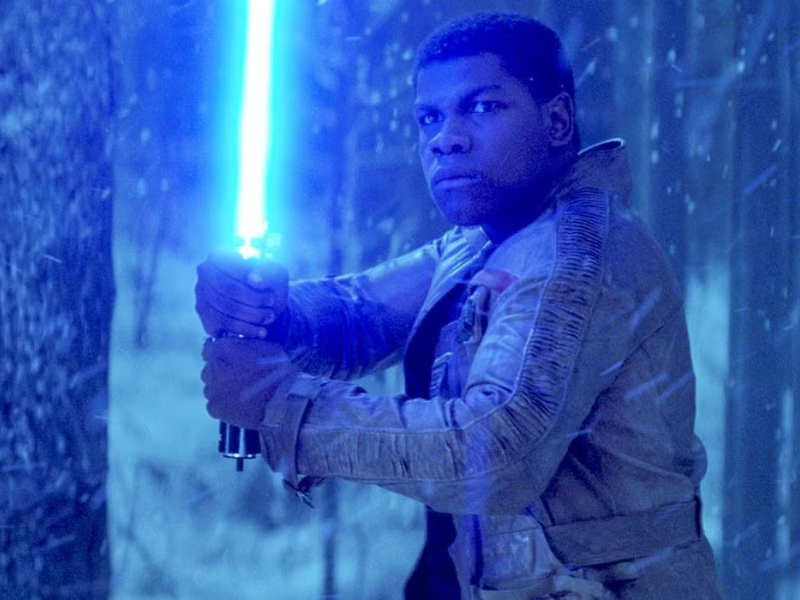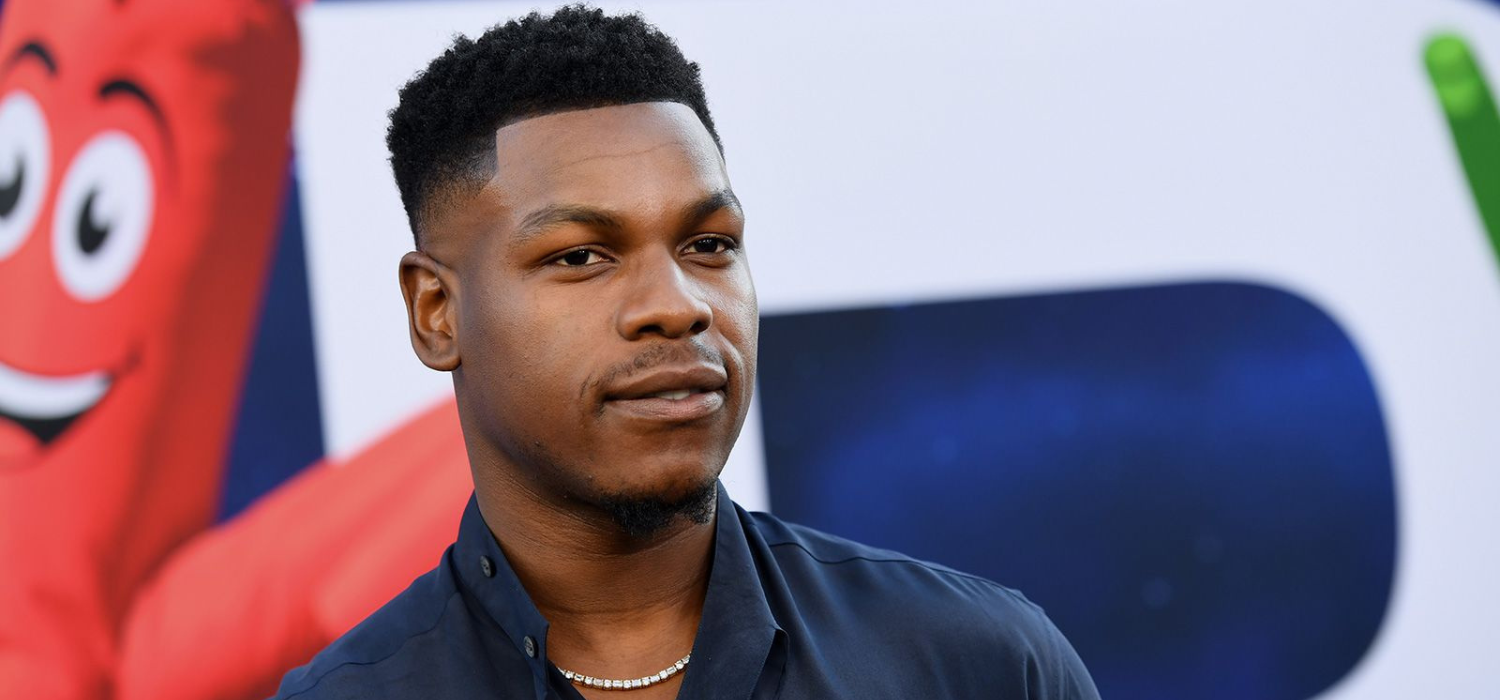Introduction: A Modern Icon in British Cinema
John Boyega has emerged as one of the most prominent and inspiring young actors of his generation. Born in London to Nigerian parents, Boyega’s story is one of passion, persistence, and determination. From humble beginnings to international stardom, his journey encapsulates the struggles and triumphs of an actor who has become a voice for diversity, equality, and change in the global film industry. This blog explores his life, career, and the impact he continues to make both on and off the screen.
Early Life and Roots in Peckham
John Adedayo Bamidele Adegboyega was born on March 17, 1992, in Peckham, South London. Growing up in a working-class neighborhood, Boyega faced challenges that would later influence his worldview and performances. His Nigerian heritage played a significant role in shaping his identity, as he navigated life between two cultures: the vibrant African traditions of his family and the urban landscape of London.
Even as a child, Boyega exhibited a strong interest in storytelling and performance. His teachers recognized his talent early, often praising his ability to captivate an audience with dramatic flair. At the age of nine, he began training with Theatre Peckham, a local arts organization that provided a safe space for young people to develop their talents. This grassroots foundation instilled in him discipline, creativity, and resilience—qualities that became central to his career.
Education and Training
Boyega attended Westminster City School, where he balanced academics with his love for drama. His participation in school plays reinforced his dream of becoming an actor. Later, he studied Performing Arts at South Thames College before attending the University of Greenwich. Though he eventually left university to focus fully on acting, his formal education and practical training helped sharpen his craft.
He also joined the Identity School of Acting in London, a place known for nurturing Black and minority ethnic actors. Alumni include stars like Letitia Wright, Damson Idris, and Michaela Coel. The school became a launchpad for Boyega, equipping him with professional skills and connecting him with a network of industry opportunities.

Breakthrough with Attack the Block
In 2011, Boyega landed his breakout role in the British sci-fi comedy film Attack the Block. Playing Moses, a teenage gang leader who defends his neighborhood against alien invaders, Boyega immediately captured critical attention. The film became a cult classic, praised for its originality, social commentary, and Boyega’s magnetic performance.
Critics highlighted his ability to blend toughness with vulnerability, making Moses both relatable and heroic. Attack the Block not only introduced Boyega to audiences worldwide but also signaled the arrival of a fresh and powerful talent in British cinema.
Hollywood Breakthrough: Star Wars and Global Fame
Boyega’s career took a historic leap in 2015 when he was cast as Finn in Star Wars: The Force Awakens. His role as a former Stormtrooper turned hero was groundbreaking, marking one of the most prominent Black lead roles in the franchise.
The film became a global phenomenon, grossing over $2 billion worldwide. Boyega’s portrayal of Finn was celebrated for its humor, humanity, and depth. His chemistry with co-stars Daisy Ridley and Oscar Isaac added to the film’s charm, making him a beloved figure among fans.
Boyega reprised the role in The Last Jedi (2017) and The Rise of Skywalker (2019), solidifying his place in Hollywood. Beyond the screen, his casting in such a major franchise signaled progress for representation in blockbuster cinema.
Challenges Within the Franchise
While Star Wars catapulted Boyega to international stardom, it also exposed him to the challenges faced by actors of color in Hollywood. Boyega has been candid about his frustrations with how his character was sidelined in the later films and how Black characters often face underdevelopment in big-budget franchises.
His openness sparked important conversations about diversity, inclusion, and equity in the film industry. Boyega’s courage in speaking out—even at the risk of professional backlash—demonstrates his commitment to authenticity and justice, both on and off screen.
Expanding Beyond Blockbusters
Determined not to be typecast, Boyega deliberately pursued diverse roles outside of Star Wars. In Kathryn Bigelow’s Detroit (2017), he portrayed a security guard caught in the midst of racial tensions during the 1967 Detroit riots. The performance earned critical acclaim, showcasing his dramatic range and ability to handle complex, socially charged material.
He also starred in films like Pacific Rim: Uprising (2018) and independent projects that allowed him to flex his creative muscles. Boyega’s choices reflect his ambition to balance mainstream success with meaningful, artistic storytelling.
Championing Diversity and Representation
Boyega has become an outspoken advocate for racial equality in the entertainment industry. He uses his platform to demand fair treatment, better representation, and opportunities for underrepresented communities. His advocacy gained global attention during the Black Lives Matter protests in 2020, where he delivered a powerful speech in London’s Hyde Park.
The moment went viral, with many praising him for his courage and authenticity. Boyega risked his career by openly criticizing systemic racism, but instead, his bold stance strengthened his role as both an artist and an activist.
Awards and Recognition
Throughout his career, Boyega has earned numerous accolades. He won the BAFTA Rising Star Award in 2016, cementing his status as one of Britain’s most promising talents. His role in Small Axe: Red, White and Blue (2020), directed by Steve McQueen, earned him a Golden Globe Award for Best Supporting Actor.
These recognitions underscore his ability to bring nuance and depth to every character he portrays, whether in blockbuster franchises or intimate television dramas.

John Boyega as a Producer
In addition to acting, Boyega has stepped into producing. Through his production company, UpperRoom Productions, he aims to champion diverse voices and stories often overlooked by mainstream cinema. By taking control of the creative process, Boyega seeks to pave the way for new generations of storytellers.
His transition from actor to producer signals his long-term vision: to not only perform in great stories but to create them.
Influence on Young Actors
Boyega’s journey inspires aspiring actors worldwide. His story proves that talent, determination, and authenticity can break barriers. For young people from working-class backgrounds or underrepresented communities, he is living proof that success in Hollywood is possible without compromising one’s identity.
He often emphasizes the importance of staying true to one’s roots, reminding young actors to value their unique perspectives and voices.
Future Projects and Continuing Legacy
Boyega’s career shows no signs of slowing down. With upcoming projects across film and television, he continues to diversify his portfolio. Rumors of collaborations with visionary directors and new creative ventures highlight his evolving role in global cinema.
As he grows as both actor and producer, Boyega’s impact on the industry will only deepen. His combination of artistry, activism, and leadership ensures that his legacy will extend far beyond the screen.
From Peckham to Stardom: The Early Career of John Boyega
John Boyega’s story begins in Peckham, South London, where his Nigerian roots played a defining role in shaping his identity. Growing up in a working-class family, Boyega was introduced to acting at a young age, attending Theatre Peckham, a local drama school that nurtured young talent. His community recognized his passion, and his teachers saw the spark that would eventually transform him into one of the most recognizable faces of his generation.
Boyega’s early performances reflected his determination to rise beyond boundaries. At Theatre Peckham, he performed in local productions and was often praised for his natural charisma and stage presence. This was not just an extracurricular activity—it became his calling. While many young actors struggle to balance education with their aspirations, Boyega excelled, showing both discipline and an unshakable focus on his dreams.
He continued his training at South Thames College, studying Performing Arts, before further refining his craft at the Identity School of Acting in London. Founded by Femi Oguns, the school has produced numerous British stars of global renown, and Boyega quickly emerged as one of its standout students. His journey from grassroots theatre to elite training institutions represents a blueprint for aspiring young actors: talent matched with consistent effort and community support.
‘Attack the Block’: A Defining Breakthrough
The year 2011 marked a turning point in John Boyega’s career with his breakthrough role in Attack the Block, a sci-fi film directed by Joe Cornish. The film tells the story of South London teenagers defending their neighborhood from alien invaders. Boyega played Moses, a fearless and morally complex gang leader.
The role was significant not just for Boyega’s career, but also for British cinema. It highlighted the vibrancy of inner-city youth culture while weaving it into a larger narrative of courage and redemption. Boyega’s portrayal of Moses was authentic, commanding, and deeply human. Critics praised his ability to balance toughness with vulnerability, and audiences were immediately captivated by his screen presence.
Although Attack the Block was not a blockbuster by Hollywood standards, it became a cult classic. It announced Boyega as an actor of extraordinary potential, one who could carry a film on his shoulders while bringing a new kind of hero to life—one rooted in the realities of modern Britain.
The success of Attack the Block also helped Boyega stand out in an increasingly competitive industry. He was suddenly on the radar of casting directors and producers who were searching for fresh talent capable of appealing to both UK and international audiences.
Beyond Blockbusters: Exploring Dramatic Roles
While Star Wars made Boyega a household name, he has always sought projects that challenged him artistically. His desire to tell diverse and meaningful stories led him to roles beyond science fiction.
In 2017, he starred in Kathryn Bigelow’s Detroit, a gripping historical drama based on the 1967 Detroit riots. Boyega portrayed Melvin Dismukes, a security guard caught in the chaos. The role required nuance and sensitivity, and Boyega delivered a performance that was both restrained and powerful. His ability to inhabit complex characters further solidified his reputation as more than just an action star.
In 2020, Boyega headlined Red, White and Blue, part of Steve McQueen’s acclaimed Small Axe anthology series. The film told the true story of Leroy Logan, a Black British police officer who joined the Metropolitan Police to challenge systemic racism from within. Boyega’s performance was met with universal acclaim, earning him a Golden Globe nomination and a Critics’ Choice Television Award. The role allowed him to connect his craft with his advocacy, as he has been a vocal critic of racial injustice.
These projects demonstrated Boyega’s commitment to meaningful storytelling. He was not content to ride the wave of blockbuster fame—he sought to use his platform to elevate important narratives and challenge stereotypes.

Boyega as an Advocate: Using His Voice for Change
Beyond his acting career, John Boyega has become a powerful advocate for social justice. In June 2020, during global protests sparked by the killing of George Floyd, Boyega made headlines for delivering an impassioned speech at a Black Lives Matter rally in London’s Hyde Park. Speaking through tears, he declared, “I don’t know if I’m going to have a career after this, but f*** that.”
His courage and authenticity resonated worldwide. Far from damaging his career, his words elevated him as a voice of conscience within the entertainment industry. Boyega became an emblem of integrity, demonstrating that artists can use their influence for causes greater than themselves.
He has since continued to champion diversity in film and television. Boyega has spoken out against the treatment of Finn in the later Star Wars films, arguing that his character was sidelined compared to others. By calling attention to such issues, he has challenged Hollywood to confront systemic biases.
The Producer’s Eye: Creating Opportunities
John Boyega has not limited himself to acting alone. Through his production company, UpperRoom Entertainment, he aims to create opportunities for diverse voices and tell stories that reflect the richness of underrepresented communities. His commitment to producing content highlights his long-term vision: to shape the industry from both in front of and behind the camera.
By stepping into producing, Boyega is carving out a legacy that extends beyond performance. He is setting the stage for future generations of actors, particularly those from marginalized backgrounds, to see themselves represented in powerful narratives.
Conclusion: An Inspiring Journey
John Boyega’s story is more than a tale of fame; it is a journey of resilience, cultural pride, and artistic dedication. From the streets of Peckham to the stages of Hollywood, he has defied odds and used his voice to champion change.
Boyega is not just an actor—he is a storyteller, an activist, and a role model for a generation seeking authenticity and representation. His inspiring journey continues to light the way for the next wave of global talent, proving that true stars shine brightest when they remain grounded in truth and purpose.


